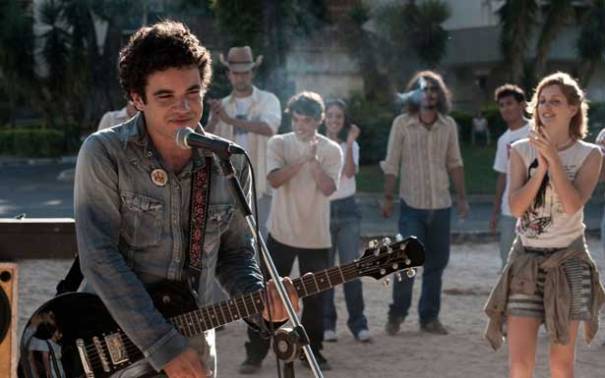
A 28-year-old young woman is smoking a cigarette next to a car. The camera follows the direction of the smoke that spreads and disappears in the sky; and by the time the image comes back to the car, Azumi Haruko is gone. I like those beginnings in extrema res, whose details and reasons become puzzle pieces for the audience. アズミ・ハルコ 行方不明 (Azumi Haruko Yukue Fumei, Haruko Azumi is Missing) is one of those films with a chaotic structure of characters and time as in a time-traveler machine, a collage of graffiti conceptual art that tells the story of a few young women fed up with a small-town narrow-minded society that doesn’t let them pursue happiness.
We have the group of high-school girls that raid the night in search of lonely guys to beat them up, as in a clockworkorange-like orgy of counter-violence; the two women, respectively in their late 20’s and 30’s, having to work next to two 昭和 Shôwa-era-thinking middle-age misogynists who insist that women should get married by 30, before they get rotten; a 20-year old girl used and despised by her boyfriend; and a happily-divorced young mother who has tasted the sour dream of a conventional family.
The commodification of art is another of the themes that young director Matsui Daigo introduces in the film: an entrepreneur sees in the missing young woman an opportunity for making money trying to revive a forgotten amusement park in a forgotten town with no future, a town where most young people seem to be フリーター (Furita). Of course, the result is failure, and it seems that the only exit for those women in town is to run away from it. The sooner, the better; the faster, the safer.
How should we take Azumi Haruko Yukue Fumei? As a self-contained fable with no referential or mimetic reading? As a metaphor for mainstream Japanese society in line with Koreeda’s Kuuki Ningyou?
In any case, originally based in the homonymous novel by Yamauchi Mariko, it’s a visual pleasure to watch. And 蒼井優 (Aoi Yû) is great in her role.










